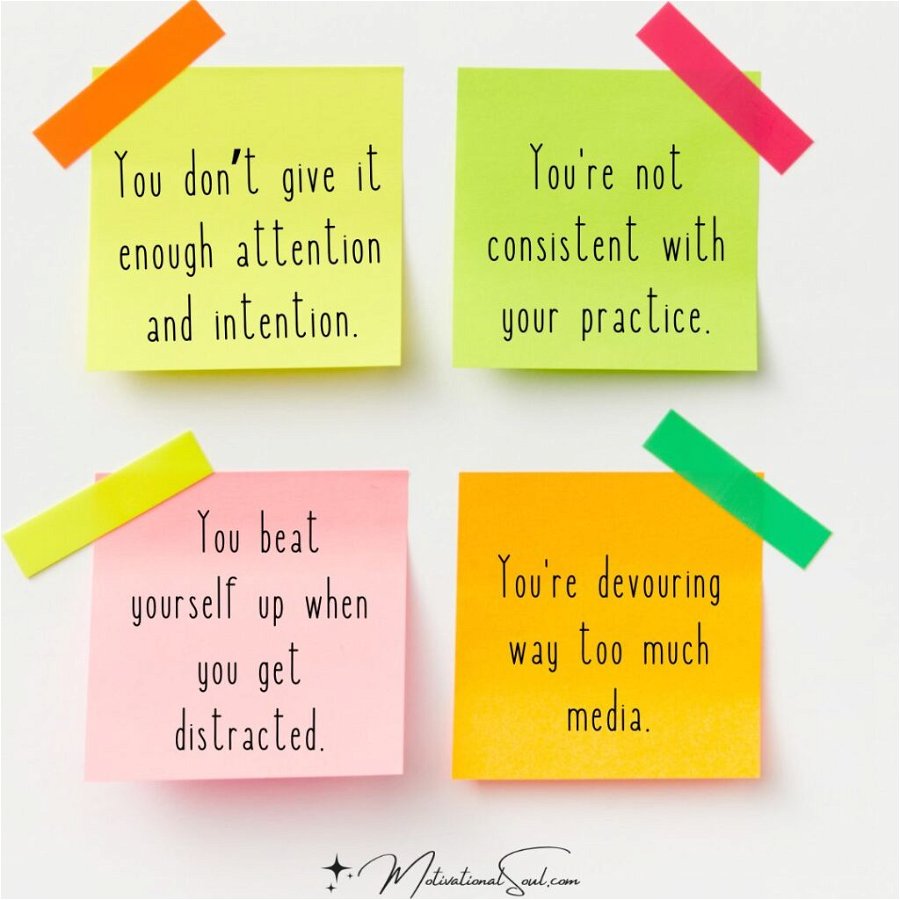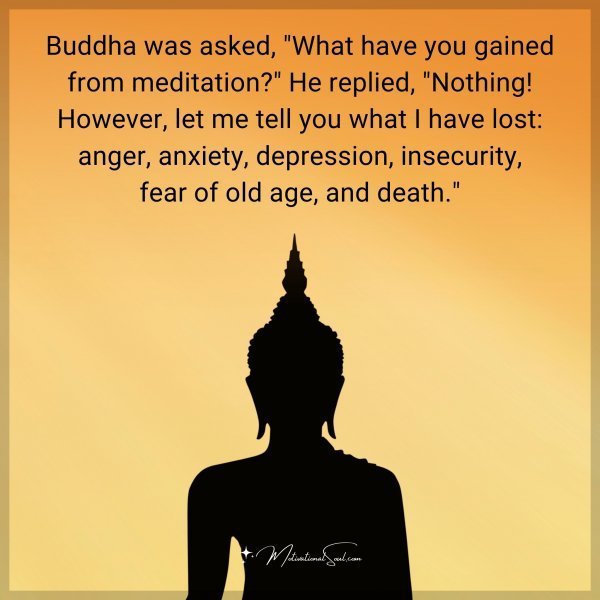How to Avoid These Meditation Mistakes and Get the Most Out of Your Practice

Meditation is an art that can be learned through practice. When you first start meditating, there are many mistakes people make which interfere with their practice and prevent them from getting the most out of it but don’t worry!
In this blog post, we will discuss some common mistakes people make while learning how to avoid them yourself so your time spent on meditation isn’t wasted.

1. You’re not consistent with your practice.
“The secret of meditation is doing it consistently.”- Sri Chinmoy
When you first start out meditating, it is important to be consistent with your practice. Many people make the mistake of starting and then stopping their practice after a few days or weeks.
It’s important to find a time that works for you and stick to it, even if it’s just for a few minutes each day. If you only meditate occasionally, it will be difficult to see any benefits from your practice.
To avoid this, try to meditate at the same time each day and make it a part of your daily routine. If you can’t commit to meditating every day, start a few times a week and gradually increase the frequency of your practice.
2. You meditate with the assistance of external aids.
“Meditation is an inner process. It has nothing to do with the outer world.”- Osho
Many people try to meditate using external aids such as candles, music, or chanting. While these things can be helpful in some cases, they are not necessary for successful meditation practice. Using too many external aids can be detrimental to your practice.
If you find that you need assistance to meditate, try using a simple mantra or focusing on your breath. Once you become more comfortable with the practice, you can experiment with other aids if you’d like.
Remember, the goal of meditation is to focus on your inner experience and connect with your true nature. using external aids can be a distraction from this goal.

3. You don’t experiment with different types of meditation.
One of the most common mistakes people make when they start meditating is not experimenting with different types of meditation. There are many different ways to meditate, and it’s important to find a method that works for you. If you only stick to one type of meditation, you may become discouraged if it doesn’t seem to be working for you.
To avoid this, experiment with different types of meditation and find a method that resonates with you. There is no one “right” way to meditate, so don’t be afraid to try something new. You may be surprised at how effective a different approach can be.
When you find a meditation method that you like, stick with it for a while and see how it affects your experience. Remember, the goal is to find a practice that you can stick with long-term.
4. You don’t give it enough attention and intention.
One of the most important parts of meditation is giving it your full attention and intention. If you Half-heartedly try to meditate, you will likely not see any benefits from the practice. It’s important to be fully present and focused when you meditate.
To avoid this, make sure that you are clear about why you want to meditate and what you hope to achieve from it. Set an intention for your practice and be clear about what you want to get out of it. Then, give your full attention to the meditation and let go of any other thoughts or distractions.
If you can commit to these things, you will be well on your way to successful meditation practice.

5. You beat yourself up when you get distracted.
“Mindfulness is not a matter of trying to focus the mind on one thing and holding it there. Rather, it is simply being aware of whatever arises in each moment.”-Thich Nhat Hanh
One of the biggest mistakes people make when they meditate is getting frustrated with themselves when they get distracted. It’s important to remember that everyone gets distracted when they meditate. It’s part of the process.
The key is to not get attached to the thoughts and just let them go. If you can do this, you will find that your mind will gradually become more still.
Be patient with yourself and don’t expect perfection. Just keep coming back to the meditation and eventually, you will find the focus you are looking for.
6. You’re devouring way too much media.
“The best way to learn about something is to experience it for yourself.”- The Buddha
Many people try to learn about meditation by reading books or articles, watching videos, or listening to podcasts. While these things can be helpful in some cases, they are no substitute for experience.
If you want to learn how to meditate, the best way is to simply start practicing. Experiment with different techniques and find a method that works for you. Then, commit to regular practice and stick with it.
The more you meditate, the more you will learn about the practice and how it affects you. So don’t get too caught up in trying to learn about meditation- just start practicing and the rest will come naturally.

7. You keep your mind too busy during the day.
If you want to be successful in meditation, it’s important to have some quiet time during the day when you can let your mind rest. This doesn’t mean that you need to meditate all day long, but it does mean that you should make some time for stillness and silence.
Turn off your phone, close your laptop, and just sit in silence for a while. Let your mind wander and don’t focus on anything in particular. This will help you to clear your mind and be more present when you do meditate.
If you can find some time each day to just be still, you will be much more successful in your meditation practice.

8. You have overly ambitious goals.
When you first start meditating, it’s important to set realistic goals. If you try to do too much too soon, you will likely get frustrated and give up.
Start with small goals like meditating for five minutes a day. Once you are comfortable with that, you can gradually increase the time. But don’t try to meditate for hours each day when you are just starting.
Take it slow and be patient with yourself. The more you meditate, the more progress you will make. But it’s important to start small and not get overwhelmed by too much too soon.

Conclusion:
The path to a successful meditation practice is filled with many pitfalls. If you can avoid these common errors, your chances of success will increase dramatically! Just remember that consistency and focus are key- without them there’s no way anyone could ever achieve reap all the benefits offered by this worthwhile endeavor.
As long as one practices patiencely throughout their session (even if it feels hard at first) then they’ll be able reach whatever goals or aspirations come into mind when practicing mindfulness.
Thanks for reading!



Recent Comments